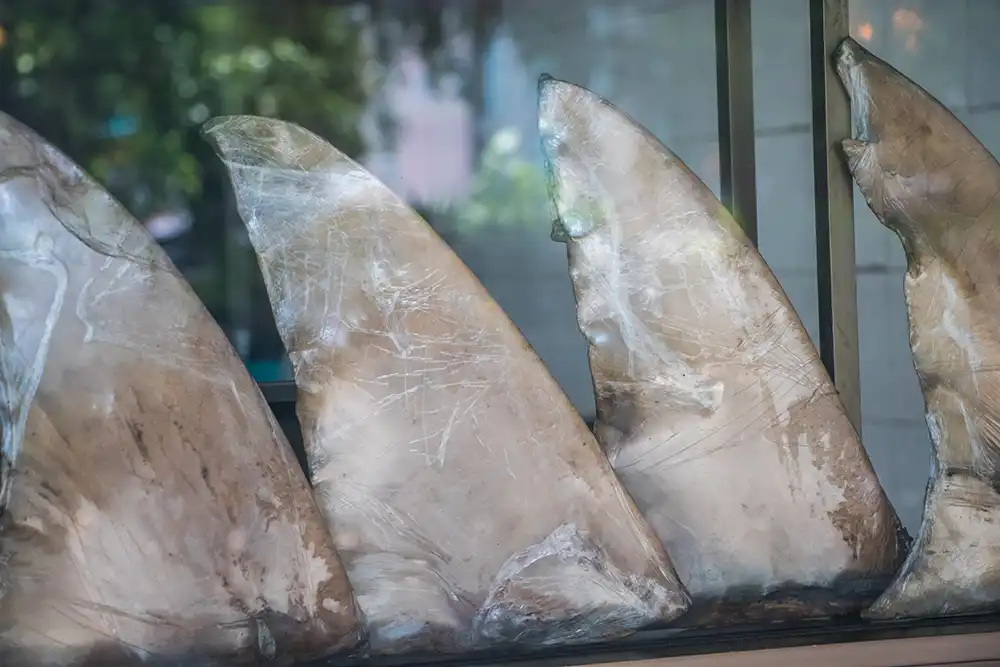
DNA evidence reveals serious non-compliance with global CITES wildlife trade rules for endangered shark species
A new study published in Science Advances has exposed a large-scale, persistent illegal trade in fins from some of the ocean’s most threatened sharks.
Researchers found fins from species listed under the Convention on International Trade in Endangered Species of Wild Fauna and Flora (CITES) continued to enter markets at rates far higher than those declared by exporting countries.
The research team — led by scientists from Mote Marine Laboratory & Aquarium, Florida International University and the Wildlife Conservation Society (WCS) — analysed DNA from nearly 20,000 shark-fin samples collected between 2015 and 2021 in major markets.
Included among their key findings were data showing the fins of the Oceanic whitetip shark appeared around 70 times more frequently in market samples than were officially recorded in CITES trade data; and fins of scalloped, smooth and great hammerhead sharks were about 10 times more common than expected.
The study indicates that 81 per of shark-fin-exporting countries reported zero exports for the threatened species, despite DNA evidence linking fins to those countries’ waters or trade networks.
According to WCS, the findings reveal what the organisation describes as a ‘systemic failure’ in the enforcement of CITES obligations. Luke Warwick, director of shark and ray conservation at WCS, said: ‘CITES is the strongest global tool we have to ensure wildlife trade isn’t driving species toward extinction.
‘When it’s implemented well, it works — but more is clearly needed to ensure it works for sharks.’
The research also highlighted that Hong Kong remains a major global hub for the shark-fin trade, including fins from species that should not legally be traded. Many of the source countries either reported no exports or did not reflect the volumes revealed by the DNA tests.
The authors of the study caution that without urgent improvement in trade-traceability, monitoring and regulatory enforcement, shark species already classified as endangered or vulnerable may face further population collapse.
The full study, ‘International trade regulations take a limited bite out of the shark-fin trade’, is published in Science Advances.


